Saffron may offer antioxidant, anti-inflammatory, and anticancer advantages. However, pregnant individuals should avoid consuming it in large amounts.

Saffron ranks as the priciest spice globally, with 1 pound (450 grams) priced between $500 and $5,000.
This steep cost stems from its labor-intensive harvest, which makes production expensive.
Saffron is hand-harvested from the Crocus sativus flower, commonly called the saffron crocus. The word “saffron” refers to the flower’s slender thread-like parts known as the stigma.
Although saffron’s exact origin is debated, it has been utilized for nearly millennia for its therapeutic qualities.
Below are 11 notable health benefits associated with saffron.
1. A potent antioxidant
Saffron contains a remarkable assortment of plant compounds. These may function as antioxidants—substances that shield your cells from free radicals and oxidative damage.
Key antioxidants in saffron include:
- crocin
- crocetin
- safranal
- picrocrocin
- kaempferol
Crocin is perhaps the most prominent antioxidant in saffron. It gives saffron its red hue and research indicates it may have antidepressant effects and protect neurons from progressive harm.
Studies indicate safranal might be beneficial for several health issues, including:
- inflammation
- asthma
- high blood pressure
- cancer
- depression
Finally, kaempferol is present in saffron petals. This compound could help strengthen the immune system and guard against various viruses, such as:
- hepatitis B
- influenza
- HIV
- respiratory syncytial virus
2. May boost mood and ease depressive symptoms
Saffron is often called the sunshine spice—not only for its vivid color but also because it may help lift mood.
A clinical trial found that saffron performed significantly better than a placebo in treating mild to moderate depression symptoms.
Likewise, other studies discovered saffron to be as effective as fluoxetine, imipramine, and citalopram—standard antidepressant medications. Additionally, fewer people experienced adverse effects with saffron than with these pharmaceutical treatments.
Although promising, longer and larger human trials are needed before saffron can be widely recommended as a depression treatment.
3. May possess anticancer activity
Saffron is rich in antioxidants, which help neutralize damaging free radicals. Oxidative damage from free radicals has been associated with chronic illnesses, including cancer.
Research has shown that saffron and its constituents can selectively destroy cancer cells or inhibit tumor growth while sparing healthy cells.
Evidence suggests this effect may apply to multiple cancer types, including:
- colorectal cancer
- breast cancer
- lung cancer
- prostate cancer
- cervical cancer
- leukemia
- brain cancer
Crocin, saffron’s primary antioxidant, may also sensitize cancer cells to chemotherapy agents.
While these outcomes are encouraging, further research is necessary to fully clarify saffron’s anticancer potential.
4. May ease PMS symptoms
Premenstrual syndrome (PMS) refers to the physical, emotional, and psychological symptoms that occur prior to menstruation.
Some research suggests saffron may positively influence various aspects of the female reproductive system, which could help alleviate PMS symptoms.
It’s advisable to consult a healthcare provider before using saffron for PMS, as they may suggest other remedies better suited to your needs.
5. May act as an aphrodisiac
Aphrodisiacs are foods or supplements believed to enhance libido.
Research indicates saffron may have aphrodisiac effects, particularly for individuals taking antidepressants.
For example, a review found that in certain studies, saffron improved:
- erectile function
- sexual arousal
- sexual satisfaction
- genital lubrication
Additionally, a meta-analysis of six trials showed saffron significantly improved erectile function, libido, and overall sexual satisfaction, though it did not affect semen parameters.
In a study of women with low sexual desire related to antidepressant use, 30 milligrams (mg) of saffron daily for 4 weeks decreased sexual pain and increased desire and lubrication compared to placebo.
Learn more about natural strategies to enhance libido.
6. May suppress appetite and support weight loss
Evidence suggests saffron might help curb appetite and aid weight management, particularly in people with obesity.
For instance, a clinical trial reported that taking 60 mg of saffron daily for 12 weeks was considerably more effective than a placebo in reducing body mass index (BMI), waist circumference, and body weight. Researchers also observed improvements in HDL (good) cholesterol and reductions in triglyceride levels.
Similarly, another study found that an 8-week saffron extract supplementation led to decreased appetite, BMI, waist circumference, and total body fat mass.
7 to 10. Additional possible health benefits
Saffron has been associated with several other potential health effects that warrant more research:
- May lower heart disease risk factors: Some studies suggest saffron can reduce LDL cholesterol, total cholesterol, triglycerides, and blood pressure, which could help prevent arterial plaque buildup.
- May reduce blood sugar: Research indicates saffron might lower blood glucose levels and improve insulin sensitivity.
- May enhance vision in age-related macular degeneration (AMD): Saffron appears to improve vision in adults with AMD and protect against oxidative damage linked to AMD.
- May support memory in Alzheimer’s disease: Thanks to its antioxidant effects, saffron may help maintain cognition in adults with Alzheimer’s disease.
11. Easy to incorporate into meals
In small amounts, saffron lends a delicate flavor and aroma to savory dishes like paella, risotto, and other rice-based recipes.
To maximize saffron’s flavor, steep the threads in hot but not boiling water. Then add both the threads and the infused liquid to your recipe for a richer, fuller taste.
Saffron is commonly available at specialty food stores as threads or powdered form. Buying threads is preferable when possible, since they offer versatility and are less likely to be adulterated.
Although saffron is the world’s costliest spice, a tiny quantity is sufficient—usually just a pinch is needed. Using too much can impart an overly medicinal flavor to dishes.
Saffron is also sold as a dietary supplement.
Risks, precautions, and dosing
Saffron is typically safe with minimal side effects.
When used in culinary amounts, saffron does not seem to produce adverse effects in people.
As a supplement, up to 1.5 grams (g) of saffron daily is considered safe. However, doses of 5 g or more may be toxic.
Pregnant individuals should avoid high doses; animal studies have shown they can cause miscarriage, and high intake may affect the cervix in humans prior to pregnancy, according to research reports.
Another concern is adulteration, particularly with powdered saffron, which can be mixed with substances like beet, red-dyed silk fibers, turmeric, or paprika. For guidance on detecting adulterants and differences between spices, see our notes on turmeric and ginger.
Purchase saffron from reputable sources to ensure authenticity. If the price seems unusually low, it’s best to avoid it.
As with any supplement, consult your healthcare provider before taking saffron in supplemental form.
Frequently asked questions
Is saffron safe to consume daily?
Generally, consuming up to 1.5 g of saffron per day is considered safe.
What effects does saffron have on the brain?
Research suggests saffron may help lower the risk of brain-related disorders such as depression, Alzheimer’s disease, Parkinson’s disease, post-traumatic stress disorder, and epilepsy, among others.
Takeaway
Saffron is a nutrient-rich spice loaded with antioxidants.

It’s been associated with various health benefits, including improved mood, enhanced libido and sexual function, reduced PMS symptoms, and support for weight loss.
Moreover, it’s generally safe for most people and simple to include in your diet.

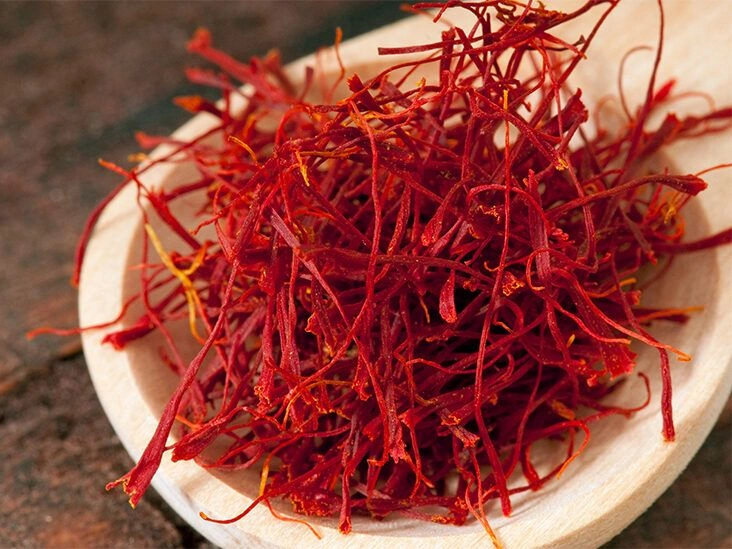



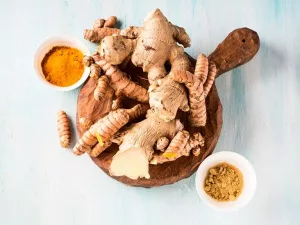



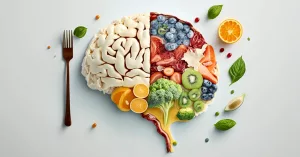




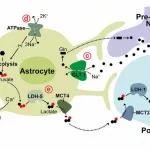


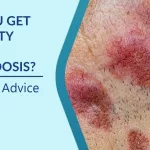
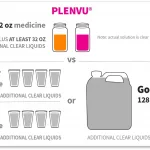






Leave a Reply
You must be logged in to post a comment.